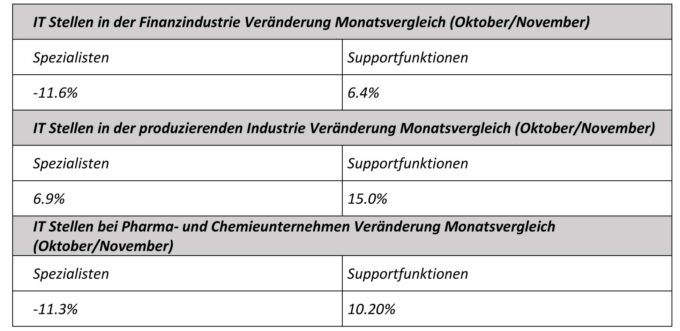How the IT organization can become better
How is the role of IT currently perceived in companies, and what will change in the future? The management consultancy Horváth & Partners asked these questions in a recent study. The results show that many decision-makers believe that the IT department does not react quickly enough to new requirements or fails to provide innovative solutions.

IT is changing rapidly: digitization, robotics, Artifical Intelligence, and the need for greater flexibility and speed are impacting the role of IT in enterprises. IT is being asked to evolve from a clearly structured service provider focused on cost efficiency to an integral driver of digital transformation. Thus, 96 percent of the decision-makers surveyed agree that the importance of IT within the overall organization will increase sharply over the next three years. However, in 77 percent of companies, IT is currently perceived as a purely technical function. To change this, IT departments must continue to grow with specialists in order to respond flexibly to the requirements of the business departments. Currently, only 10 percent of respondents believe that IT is capable of doing this. And only 6 percent state that IT proactively develops innovations for the business departments. This is also the picture painted by the Horváth Resource Barometer for Switzerland. Instead of filling innovative developer positions, more support functions are currently being advertised. The financial, manufacturing and chemical/pharmaceutical industries analyzed in depth in the study are examples of this trend:

"The results show that, in the perception of many decision-makers, the IT department does not react quickly enough to new requirements or fails to provide innovative solutions. IT is therefore often not seen as adaptive, i.e. differentiated and adaptable to the situation, and thus not perceived as a customer-oriented service organization," says Ingo Rasch, an expert in IT consulting at Horváth & Partners in Switzerland. An adaptive view of the organizational and technological influencing variables is necessary to create a future-oriented IT. IT organizations should know the interrelationships and processes of their company and develop innovative IT solutions for them, drive the automation of business processes and fundamentally position themselves in a more agile way. If an IT meets these requirements, it can meet the growing demands on its role in the company in the future and, on the other hand, ensure cost-efficient stability.
For the cross-industry study "Adaptive IT - The IT Organization in Transition", Horváth & Partners surveyed around 190 corporate decision-makers in Germany, Austria and Switzerland online between April and May 2018. The aim of the study was to examine the current perception and future role of the IT organization in companies.
Source: www.horvath-partners.com









